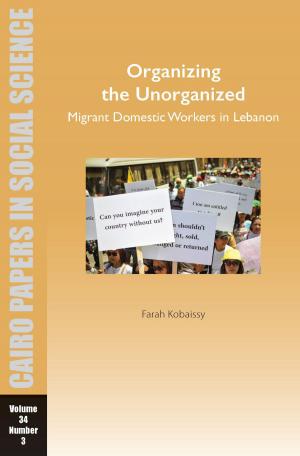Beyond The Victim
The Politics and Ethics of Empowering Cairo's Street Children
Nonfiction, Social & Cultural Studies, Social Science, Sociology, Urban| Author: | Kamal Fahmi | ISBN: | 9781617975639 |
| Publisher: | The American University in Cairo Press | Publication: | May 1, 2007 |
| Imprint: | The American University in Cairo Press | Language: | English |
| Author: | Kamal Fahmi |
| ISBN: | 9781617975639 |
| Publisher: | The American University in Cairo Press |
| Publication: | May 1, 2007 |
| Imprint: | The American University in Cairo Press |
| Language: | English |
Street children-abandoned or runaway children living on their own-can be found in cities all over the world, and their numbers are growing despite numerous international programs aimed at helping them. All too frequently, these children are viewed solely as victims or deviants to be rescued and rehabilitated. In Beyond the Victim, sociologist Kamal Fahmi draws on eight years of fieldwork with street children in Cairo to portray them in a much different-and empowering-light. Fahmi argues that, far from being mere victims or deviants, these children, in running away from alienating home lives and finding relative freedom in the street, are capable of actively defining their situations in their own terms. They are able to challenge the roles assigned to children, make judgments, and develop a network of niches and resources in a teeming metropolis such as Cairo. Fahmi suggests that social workers and others need to respect the agency the children display in changing their own lives. In addition to collective advocacy with and on behalf of street children, social workers should empower them by encouraging their voluntary participation in non-formal educational activities.
Street children-abandoned or runaway children living on their own-can be found in cities all over the world, and their numbers are growing despite numerous international programs aimed at helping them. All too frequently, these children are viewed solely as victims or deviants to be rescued and rehabilitated. In Beyond the Victim, sociologist Kamal Fahmi draws on eight years of fieldwork with street children in Cairo to portray them in a much different-and empowering-light. Fahmi argues that, far from being mere victims or deviants, these children, in running away from alienating home lives and finding relative freedom in the street, are capable of actively defining their situations in their own terms. They are able to challenge the roles assigned to children, make judgments, and develop a network of niches and resources in a teeming metropolis such as Cairo. Fahmi suggests that social workers and others need to respect the agency the children display in changing their own lives. In addition to collective advocacy with and on behalf of street children, social workers should empower them by encouraging their voluntary participation in non-formal educational activities.















